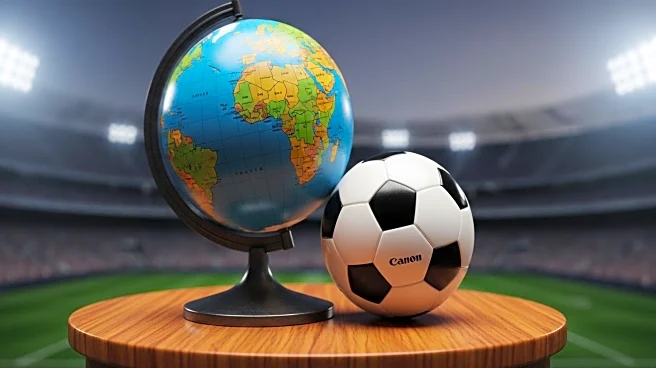What's Happening?
FIFA President Gianni Infantino has stated that FIFA cannot resolve geopolitical issues, as pressure mounts on the organization to sanction Israel. This comes after a United Nations commission accused Israel of committing genocide against Palestinians in Gaza. Despite these allegations, Israel's participation in international football remains unaffected, as it continues to compete in European qualifiers for the World Cup. Amnesty International has urged FIFA and UEFA to suspend the Israeli Football Association from their tournaments. However, FIFA Vice President Victor Montagliani indicated that the decision lies with UEFA. Infantino emphasized football's role in promoting peace and unity, rather than solving geopolitical conflicts.
Why It's Important?
The situation highlights the intersection of sports and international politics, where organizations like FIFA are pressured to take stances on geopolitical issues. The potential suspension of Israel from international football could have significant implications for the sport's governance and its role in global diplomacy. It also raises questions about the responsibilities of sports organizations in addressing human rights concerns. The decision could affect Israel's participation in major tournaments, impacting players, fans, and the broader football community. The stance taken by FIFA and UEFA could set a precedent for how sports bodies handle similar geopolitical issues in the future.
What's Next?
As the situation develops, UEFA's decision on Israel's participation will be closely watched. Any action taken could prompt reactions from various stakeholders, including governments, human rights organizations, and the international football community. The ongoing World Cup qualifiers and upcoming tournaments may also be influenced by these decisions. Additionally, the broader implications for sports diplomacy and the role of international sports organizations in geopolitical matters will continue to be a topic of discussion.









